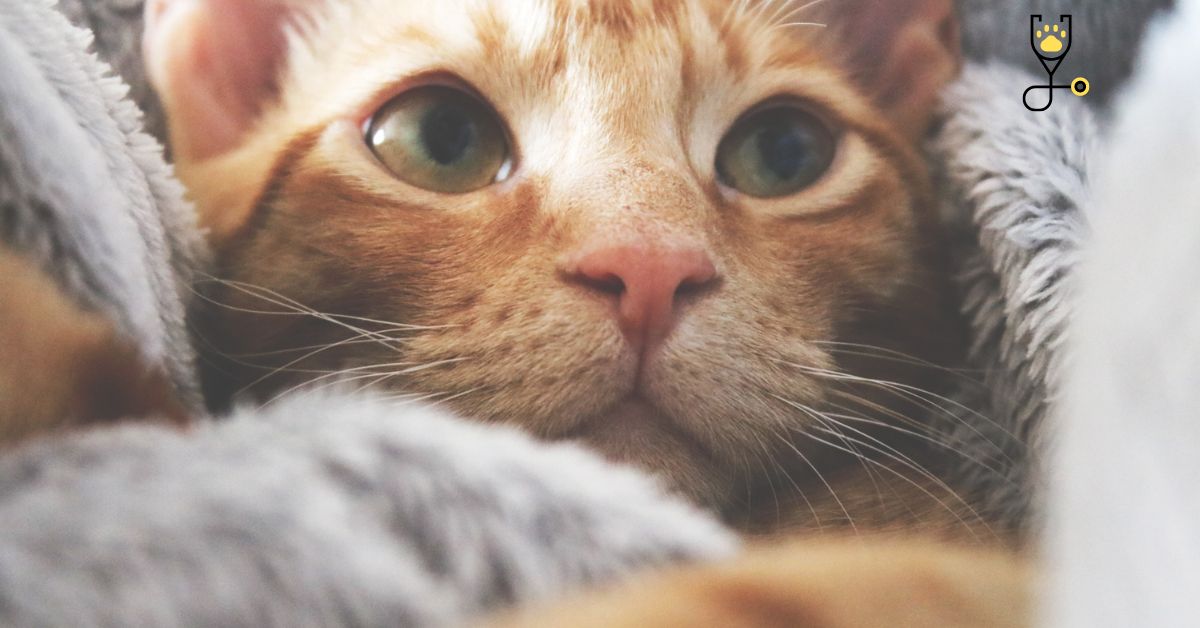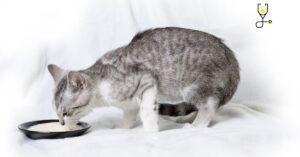As kittens grow and explore the world around them, they are bound to get sick every once in a while. One of the most common illnesses for kittens is an upper respiratory infection, or URI. URIs can cause a lot of problems for your kitten, so it’s important to be able to identify the symptoms and know how to treat them. In this blog post, we’ll take a look at what causes URIs in kittens, how they’re treated, and some tips on preventing them from occurring in the first place.
What is an upper respiratory infection?
Simply put, it’s an infection in the upper respiratory tract – the nose, throat, and sinuses. Common symptoms of a URI include runny nose, congestion, sneezing, eye discharge, and fever. These infections can be caused by a number of different viruses or bacteria, with the most common being feline herpesvirus and feline calicivirus.
What are the main causes of URIs in kittens?
1. These viruses are highly contagious and can be spread through direct contact, sneezing, or sharing of food and water bowls.

2. Kittens with compromised immune systems, such as those who are very young or have underlying health conditions, are more susceptible to contracting a URI.
3. Stressful environments, such as overcrowded shelters or living with a large number of cats, can also increase the likelihood of a kitten getting a URI.
4. Poor hygiene, such as not regularly cleaning the litter box or living space, can also lead to a higher chance of contracting a URI.
5. In some cases, allergies can also contribute to the development of a URI.
6. Lastly, exposure to tobacco smoke has been linked to an increased risk of URIs in cats.
7. In rare cases, a fungal infection can also cause symptoms similar to those of a URI.
Symptoms of a URI in a kitten with explaination
1. Runny nose and sneezing – a common symptom of an infection in the upper respiratory tract.
2. Congestion or difficulty breathing – inflammation and mucus buildup in the nasal passages can make it harder for your kitten to breathe normally.
3. Eye discharge – often seen as goopy or watery eyes, this can be a sign of infection in the eye as well as the upper respiratory tract.
4. Fever – a higher body temperature is often indicative of a viral or bacterial infection.
5. Loss of appetite – feeling under the weather often means your kitten won’t have much interest in food.
6. Lethargy – feeling sick can make your kitten less active and more tired.
7. Coughing – irritation in the throat and airways can lead to coughing.
8. Mouth breathing – congestion in the nose can cause kittens to breathe through their mouths instead.
9. Swollen lymph nodes – as the body fights off infection, lymph nodes may become enlarged.
How is a URI treated in kittens?
The first step in treating a URI is to take your kitten to the vet for a proper diagnosis and treatment plan. The vet may prescribe medication, such as antibiotics or antivirals, to help fight off the infection. In some cases, your kitten may need to be hospitalized for more intensive treatment. It’s important to follow the vet’s instructions and finish any prescribed medication, even if your kitten seems to be feeling better.

Supportive care is also important in helping your kitten recover from a URI. This can include keeping them hydrated with plenty of water, using a humidifier in their living space, and keeping their nose and eyes clean. It’s also important to keep your kitten comfortable and minimize stress, as this can help boost their immune system.
How can URIs be prevented in kittens?
-Keep your kitten up to date on vaccinations, as these can help protect against certain viruses that can cause URIs.
-Maintain good hygiene in your kitten’s living space, including regularly cleaning their litter box and any shared food or water bowls.
-Try to minimize stress for your kitten, such as providing a comfortable living environment and avoiding introducing new cats into the household too frequently. -Avoid exposing them to tobacco smoke, as this has been linked to an increased risk of URIs.
-If your kitten has underlying health conditions or a compromised immune system, work with your vet to provide proper care and support to prevent them from getting sick.
-If you have multiple cats in your household, separate any sick ones to prevent spreading infections to other cats. -Be mindful of your kitten’s exposure to other animals, as they may carry and transmit illnesses.
-Regular vet check-ups can also help catch any potential health issues before they become serious problems.
Prognosis
Prognosis for kittens with URIs can vary depending on the underlying cause and how quickly it is treated. In many cases, proper medical care and support can help your kitten recover from a URI. However, some cases may lead to complications such as pneumonia or chronic respiratory issues. It’s important to monitor your kitten for any potential warning signs and consult with your vet if you have concerns about their health. With proper prevention and care, you can help keep your kitten happy and healthy.
Conclusion
Upper respiratory infections can cause discomfort and illness in kittens, but with proper prevention and treatment they can recover and go on to lead happy, healthy lives. Remember to stay vigilant for any potential warning signs, such as congestion or loss of appetite, and consult with your vet about any concerns. By taking care of our feline friends, we can help them stay happy and healthy for years to come.
Frequently asked questions
-Can kittens get URIs from other cats?
Yes, they can be transmitted through close contact with infected cats or through shared items, such as food and water bowls.
-Can a URI in kittens lead to complications?
In some cases, a URI can lead to complications such as pneumonia or chronic respiratory issues. It’s important to monitor your kitten for any potential warning signs and consult with your vet if you have concerns about their health.
-Are there ways to prevent URIs in kittens?
Yes, some prevention methods include keeping them up to date on vaccinations, maintaining good hygiene in their living space, minimizing stress, avoiding exposure to tobacco smoke, and providing necessary care for underlying health conditions. Regular vet check-ups can also help catch any potential health issues before they become serious problems.
-What is the prognosis for kittens with URIs?
The prognosis can vary depending on the underlying cause and how quickly it is treated. In many cases, proper medical care and support can help your kitten recover from a URI. However, some cases may lead to complications such as pneumonia or chronic respiratory issues. It’s important to monitor your kitten for any potential warning signs and consult with your vet if you have concerns about their health. With proper prevention and care, you can help keep your kitten happy and healthy.
-What should I do if my kitten has symptoms of a URI?
Consult with your vet about any concerns and follow their advice for treatment. Remember to monitor your kitten for any potential warning signs and seek medical attention as needed. Proper care and support can help them recover from a URI.






